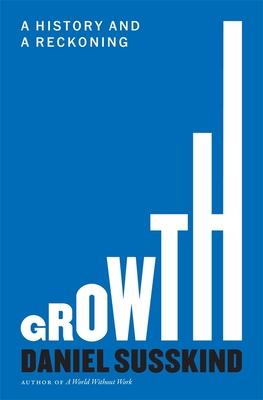A vivid account of the past, present, and future of economic growth, showing how and why we must continue to pursue it while responding to the challenges it creates.
Over the past two centuries, economic growth has freed billions from the struggle for subsistence and made our lives far healthier and longer. Yet prosperity has come at a price: environmental destruction, desolation of local cultures, the rise of vast inequalities and destabilizing technologies. Faced with such damage, many now claim that the only way forward is through "degrowth," deliberately shrinking our economic footprint. But to abandon humanity’s progress would be folly. Instead, Daniel Susskind argues, we must keep growth but redirect it, making it better reflect what we truly value.
In a sweeping analysis full of historical insight, Susskind shows how policymaking came to revolve around a single-minded quest for greater GDP. This is a surprisingly recent development: economic growth was barely discussed until the second half of the twentieth century. And our understanding of what drives it is more recent still. Only lately have we come to see how humankind emerged from its millennia of stagnation: through the sustained discovery of powerful and productive new ideas.
This insight undermines the mantra that "we cannot have infinite growth on a finite planet," for the world of ideas is infinitely vast. Yet growth’s critics are right to insist that we can no longer focus on its upsides alone. We must confront the tradeoffs, Susskind contends: sometimes, societies will have to deliberately pursue less growth for the sake of other goals. These will be moral decisions, not simply economic ones, demanding the engagement not just of politicians and experts but of all citizens.












